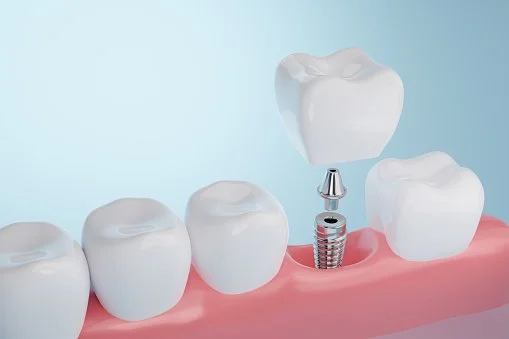Have you ever thought about how to prevent your teeth from decaying? Have you been searching for an emergency dentist McKinney to understand the reason for tooth decay? This might be the hardest thing to say to all chocolate lovers. Frequently drinking chocolate milk can lead to tooth decay in kids. The chocolate might not be all that bad, but the things that go with it, such as sugar, might affect your dental health.
How Tooth Decay Crops Up And How To Keep It Away
When bacteria convert sugar into acids in the mouth, it results in tooth decay. The surface of teeth is eaten up by these acids, leading to decay and cavities. Tooth deterioration happens gradually due to this.
However, it can be avoided mainly by
consuming less sugar
monitoring your intake of sweet and savory foods
ensuring you clean and floss your teeth twice a day.
Additionally, seeing your dentist twice a year is beneficial to detect oral issues early and eliminate plaque and tartar accumulation.
Avoid Negative Effects of Chocolate on Your Teeth
Would you like to consume chocolate without endangering your oral health? Use these suggestions!
Wash the treat with water because milk chocolate sticks to our teeth and gums. This is especially true if your preferred chocolate contains caramel or nougat. Sugars cause tooth decay if they are not cleared out of your mouth.
Most of the chocolate particles in your mouth can be removed by simply gargling with water (or even by drinking a glass), which will lessen the harmful impact chocolate has on oral health.
After eating chocolate, you might want to chew some gum. Gum containing xylitol can help you eliminate any chocolate bits that may have gotten trapped in your teeth. Additionally, xylitol gum can neutralize acidity and bring your teeth's pH level back to normal.
Continue to clean and floss your teeth — you should be doing so at least twice daily. And if you can, think about brushing your teeth after consuming chocolate. All remaining sugars and chocolate crumbs that promote tooth decay will be destroyed by brushing your teeth.
Tooth decay is not explicitly caused by chocolate. Children frequently eat chocolate between meals without brushing or rinsing. This causes plaque to build at a higher rate and kickstarts the degradation process.
Any sticky food, not only chocolates, can cause tooth decay. You must reinforce the practice of brushing or, at the very least, properly rinsing your mouth after eating a chocolate bar. This could serve as a reward and aid in removing food deposits from other foods. The child enjoys chocolate while having excellent dental hygiene emphasized!
You can indulge by eating a bar of chocolate before dinner. If consumed in this manner, the teeth have no sticky buildup. The child may enjoy chocolate while protecting their teeth against tooth decay.
Another practice is ensuring the child consumes all chocolate at once rather than nibbling continuously for hours.
Giving the child their share of chocolate at night is best, as most youngsters brush their teeth before bed. That way, you may manage the chocolate with one round of brushing or rinsing.
Does Chocolate Discolor Teeth?
Although eating chocolate may make teeth ache, the following are some of the leading causes of discoloration:
Tea and Coffee
Red wine and soft drinks
robust seasonings and sauces
Dark chocolate, also called "genuine chocolate" contains only around 30% powdered milk and sugar and about 70% cocoa. This significantly lessens the potential harm to dental enamel compared to milk chocolate.
Every day, it's crucial to practice good oral hygiene, especially after consuming sugary foods like chocolate, which can cause your enamel to erode. According to research, milk chocolate products' high sugar content contributes to tooth decay and cavities. This is a result of the interactions between sugar and some oral microorganisms.
Maintaining Oral Hygiene With Chocolate.
When it comes to keeping your teeth healthy and cavity-free, dark chocolate is the best option. According to certain research, dark chocolate may even help prevent cavities. A substance with approximately 300 constituents, chocolate is highly complex.
Polyphenols: These are present in dark chocolate. Using these drugs, you can fight the overgrowth of bacteria and other organisms in the mouth. They have the power to destroy bacteria that produce bad breath and stop some sugars from becoming acidic. These acids can erode the enamel of your teeth and lead to tooth decay and cavities.
Flavonoids found in dark chocolate have been demonstrated to decrease tooth decay.
Antioxidants: These have many positive effects on overall health. Still, regarding oral health, increased levels of antioxidants in saliva have been demonstrated to aid in preventing gum disease.
Conclusion
Tell them it's not so horrible to have your chocolate and eat it too if someone complains that chocolate causes tooth decay. Chocolate can be your best friend when discussing oral health and hygiene. Genuine dark chocolates can be your saviors if you have a sweet tooth. But do get timely dental check-ups to keep up good dental hygiene. Next time you search for a "dental check-up or dental implants near me," reach the professionals at Valley Creek.






